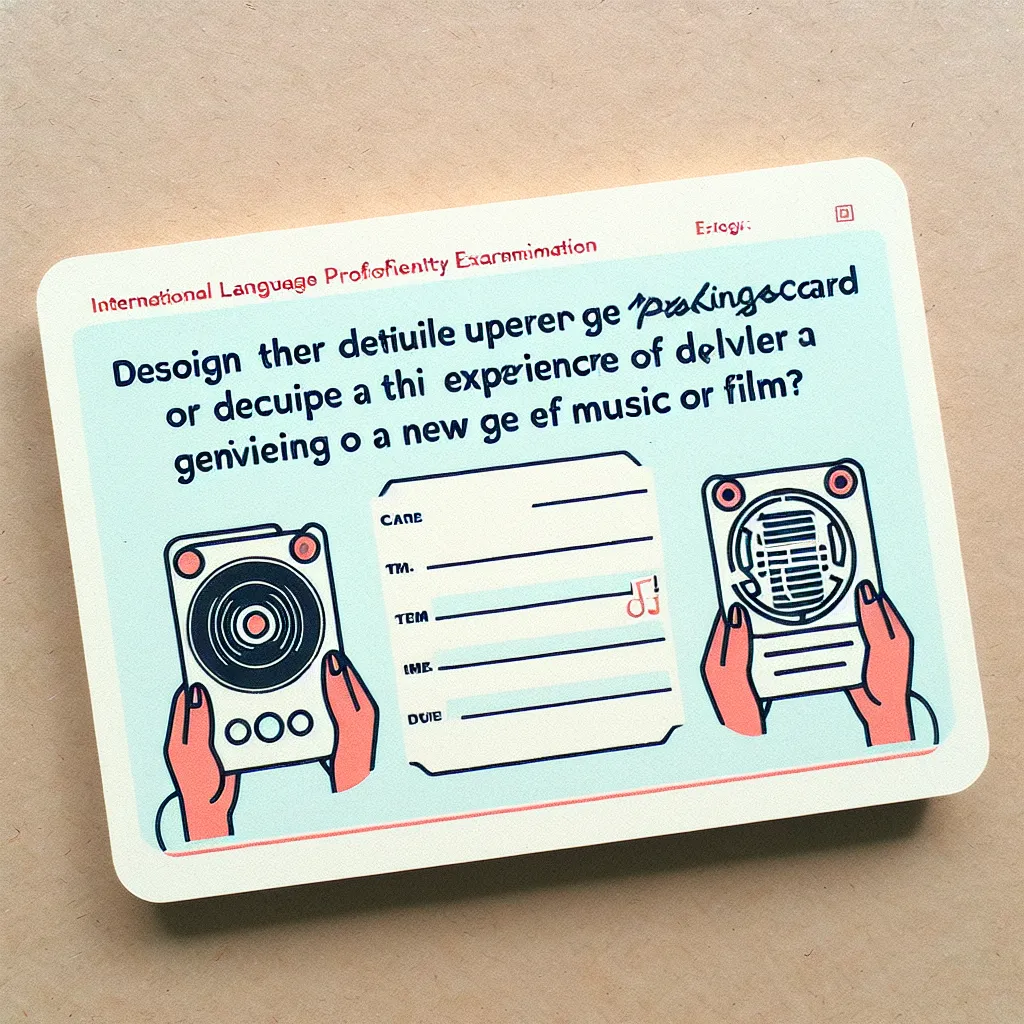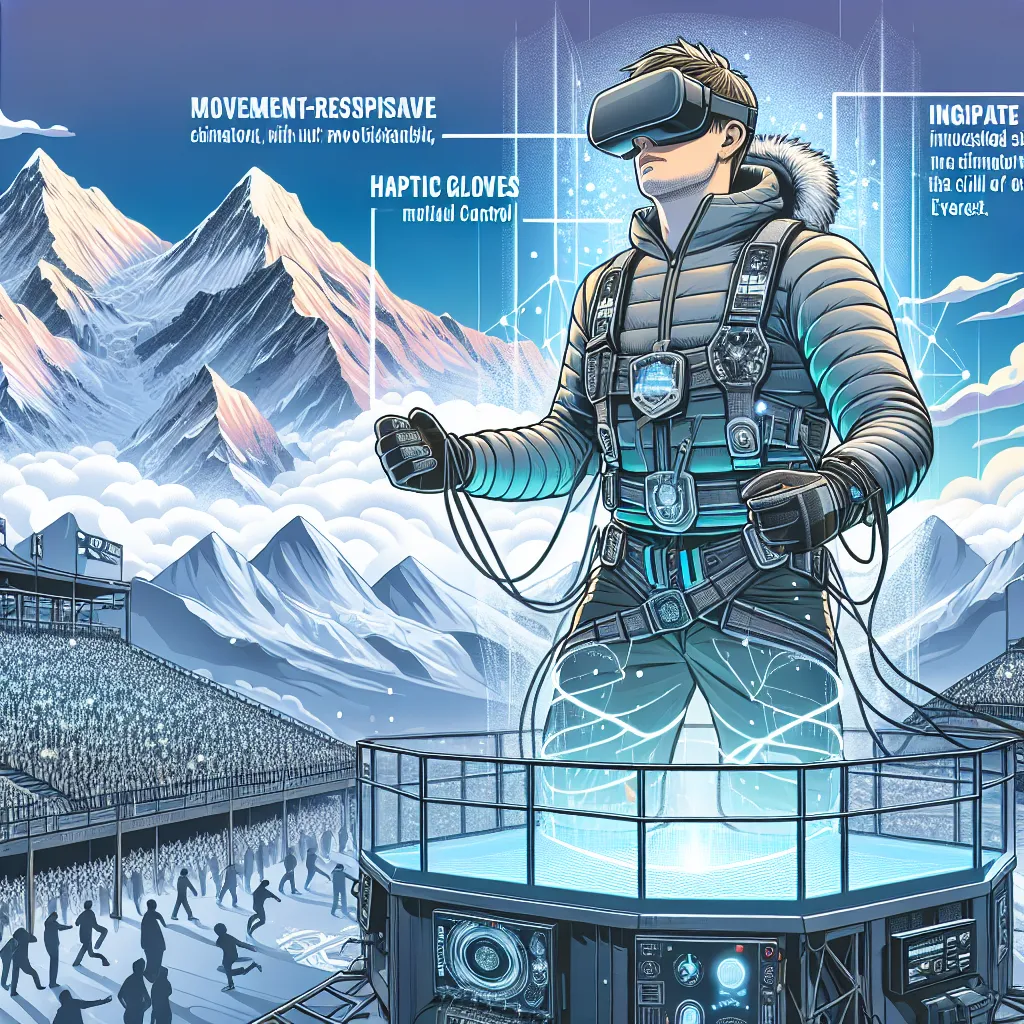As an experienced IELTS Speaking examiner and instructor, I’m here to guide you through one of the common topics in IELTS Speaking Part 2: “Describe a time when you explored a new genre of music or film.” This topic allows candidates to showcase their ability to narrate a personal experience while demonstrating their language skills. Let’s dive into how you can approach this topic and maximize your speaking score.
Nội dung bài viết
Understanding the Topic
This topic is relatively common in IELTS Speaking tests and is likely to appear in future exams. It tests your ability to:
- Describe a specific experience
- Express personal opinions and feelings
- Use vocabulary related to music, films, and personal preferences
- Organize your thoughts coherently
Part 1: Introduction and Interview
In Part 1, the examiner may ask some general questions about music and films to warm you up. Here are some possible questions:
- Do you enjoy listening to music?
- What type of music do you usually listen to?
- How often do you watch films?
- What’s your favorite genre of film?
Let’s look at a sample answer for the first question:
Examiner: Do you enjoy listening to music?
Sample Answer (Band 7-8):
“Absolutely! Music is an integral part of my daily life. I find it incredibly therapeutic and it helps me unwind after a long day. Whether I’m commuting, working out, or just relaxing at home, I always have some tunes playing in the background. It’s amazing how music can influence my mood and boost my productivity.”
Part 2: Long Turn
Now, let’s focus on the main topic. Here’s a possible cue card you might receive:
 IELTS Speaking Cue Card
IELTS Speaking Cue Card
Describe a time when you explored a new genre of music or film
You should say:
- What the genre was
- How you discovered it
- Why you decided to explore it
- And explain how you felt about this new genre
Remember, you have one minute to prepare and should speak for 1-2 minutes. Here’s a sample answer:
Sample Answer (Band 8-9):
“I’d like to talk about the time I delved into the world of jazz music, a genre I had previously overlooked. My exploration of jazz began quite serendipitously when I stumbled upon a live performance at a local cafe. The mesmerizing sounds of a saxophone and piano duo caught my attention, and I found myself captivated by the improvisational nature of their music.
What piqued my curiosity was the way the musicians seemed to communicate without words, creating a harmonious dialogue through their instruments. This intriguing aspect prompted me to explore jazz further. I was eager to understand the intricacies of this genre and appreciate its rich history.
To immerse myself in jazz, I started by creating a playlist of classic jazz artists like Miles Davis, John Coltrane, and Ella Fitzgerald. I also sought out documentaries about the evolution of jazz and its cultural significance. As I delved deeper, I found myself drawn to the complexity and emotional depth of the music.
Initially, I felt a bit overwhelmed by the sheer variety within the genre, from smooth jazz to bebop. However, as I persevered, I began to discern the unique characteristics of each sub-genre. The more I listened, the more I appreciated the skill and artistry involved in creating jazz music.
This experience was truly eye-opening and enriching. It broadened my musical horizons and gave me a newfound respect for jazz musicians. Now, jazz has become a regular fixture in my music rotation, and I find it particularly conducive to relaxation and focused work. Exploring this new genre has not only enhanced my musical taste but also taught me the value of stepping out of my comfort zone and embracing new experiences.”
Follow-up Questions
After your long turn, the examiner might ask some follow-up questions. Here are a few possibilities with sample answers:
- Do you think you’ll continue to explore other new genres in the future?
Sample Answer (Band 7-8):
“Absolutely! This experience has sparked a curiosity in me to explore more diverse musical styles. I’m particularly interested in delving into world music from different cultures. I believe that broadening my musical horizons can lead to personal growth and a deeper appreciation for global diversity.”
- How do you think exploring new genres of music or film can benefit people?
Sample Answer (Band 8-9):
“Exploring new genres can be immensely beneficial on multiple levels. Firstly, it expands one’s cultural awareness, providing insights into different societies and historical periods. It also challenges preconceived notions and can lead to increased open-mindedness. Moreover, exposure to diverse artistic expressions can stimulate creativity and foster critical thinking. From a neurological perspective, engaging with unfamiliar music or films can create new neural pathways, potentially enhancing cognitive flexibility.”
Part 3: Two-way Discussion
In this part, the examiner will ask more abstract questions related to the topic. Here are some possible questions and sample answers:
- How has technology changed the way people discover new music and films?
Sample Answer (Band 8-9):
“Technology has revolutionized the discovery process for both music and films. Streaming platforms like Spotify and Netflix use sophisticated algorithms to analyze user preferences and suggest new content, often introducing people to genres they might not have explored otherwise. Social media has also played a crucial role, allowing for rapid sharing of recommendations and viral trends that can propel lesser-known artists or indie films into the spotlight. Additionally, the accessibility of online reviews, ratings, and discussion forums has empowered consumers to make more informed choices about what they listen to or watch. However, this technological shift has also raised concerns about the potential for echo chambers, where people are mainly exposed to content similar to what they already enjoy, potentially limiting their exposure to truly diverse genres.”
- Do you think traditional genres in music and film are becoming less distinct? Why or why not?
Sample Answer (Band 7-8):
“I believe there’s definitely a trend towards genre blending in both music and film. Artists and filmmakers are increasingly breaking down traditional boundaries and experimenting with cross-genre collaborations. In music, for instance, we see pop artists incorporating elements of hip-hop, electronic, and even classical music. Similarly, in film, we’re seeing more movies that defy easy categorization, mixing elements of drama, comedy, and even sci-fi in single productions. This fusion of styles often results in innovative and fresh creative output. However, I don’t think traditional genres will disappear entirely. They still serve as important reference points and continue to evolve within their own parameters.”
Key Vocabulary and Phrases
To achieve a high band score, it’s crucial to use a wide range of vocabulary accurately. Here are some key terms and phrases that can elevate your speaking:
-
Serendipitously (adverb) – /ˌserənˈdɪpətəsli/ – by chance in a happy or beneficial way
Example: “I serendipitously discovered my favorite band while browsing in a record store.” -
Pique one’s curiosity (phrase) – to arouse interest or curiosity
Example: “The unusual melody piqued my curiosity about this new genre.” -
Immerse (verb) – /ɪˈmɜːrs/ – to involve oneself deeply in a particular activity
Example: “I decided to immerse myself in classical music to gain a better understanding of it.” -
Broaden one’s horizons (phrase) – to expand one’s range of interests, experiences, or knowledge
Example: “Exploring world cinema has really broadened my horizons in terms of storytelling techniques.” -
Conducive (adjective) – /kənˈdjuːsɪv/ – making a certain situation or outcome likely or possible
Example: “I find jazz particularly conducive to relaxation and focused work.”
Examiner’s Advice
To excel in the IELTS Speaking test, particularly when discussing exploring new genres:
-
Be specific: Provide concrete details about your experience to make your answer more engaging and authentic.
-
Use a range of tenses: Since you’re describing a past experience and its effects, practice using past, present perfect, and present tenses accurately.
-
Show enthusiasm: Examiners appreciate candidates who speak passionately about their experiences.
-
Structure your answer: Use discourse markers to organize your thoughts clearly, especially in the long turn.
-
Practice extensively: Familiarize yourself with various music and film genres to be prepared for any related questions.
Remember, the key to success in IELTS Speaking is not just about answering the question, but doing so in a way that showcases your language skills effectively. Good luck with your preparation!


